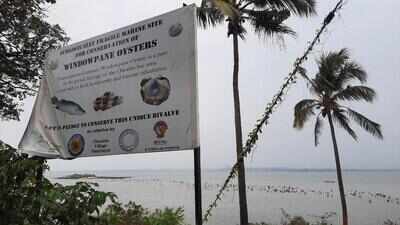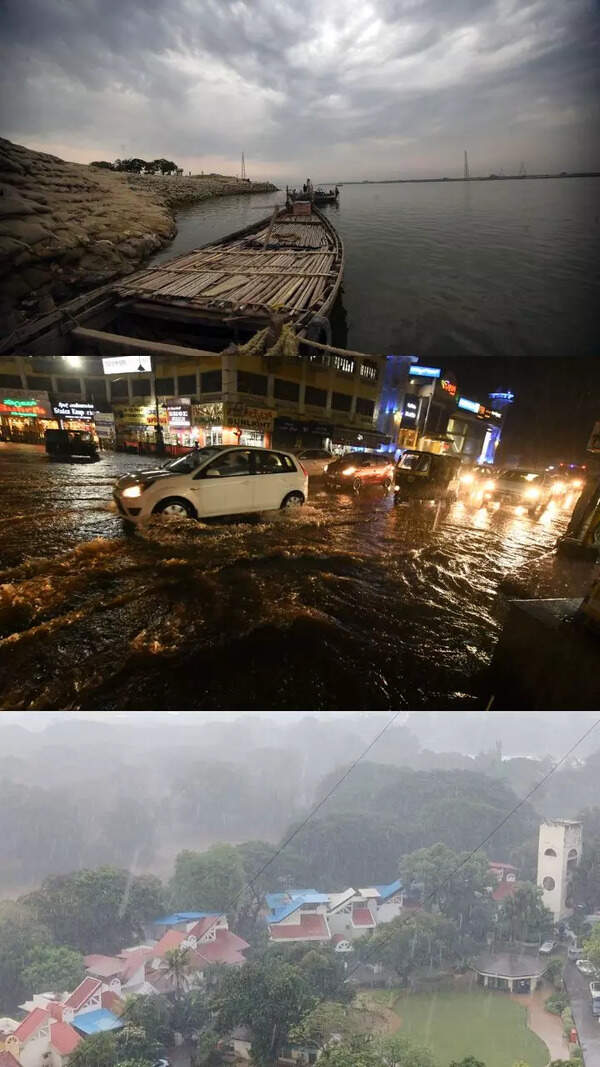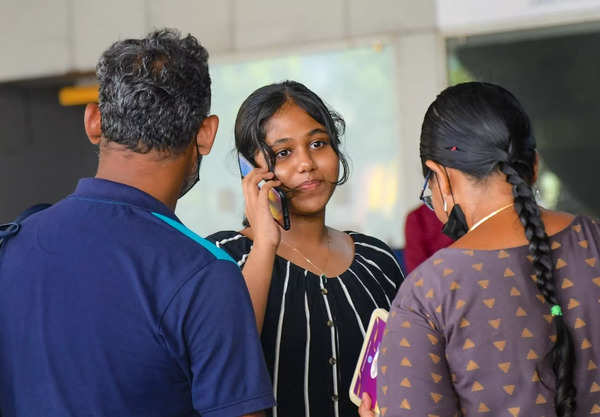Trending Topics
Greens frown as harvesters rampage site of Chicalim windowpane oyster

sdddddddddddd
Panaji: Despite the Goa State Biodiversity Board’s (GSBB) guidelines to regulate extraction of edible clams and other shellfish, unsustainable harvesting of the endangered windowpane oysters continued near Vareg island, Chicalim, on Sunday.
Chicalim bay is the only known breeding site of these unique bivalves in Goa and one of the few on India’s west coast. The bio-resource, which was available aplenty at this site a couple of decades ago, has begun disappearing due to large-scale and indiscriminate extraction.
But, just like during this season, it had occasionally reappeared over the last few years when mining and barge movement halted.
“Though the water was waist-high, at least 40 people, mostly from far-off places were seen extracting windowpane oysters, some of which were juveniles of just about three inches,” Johnson Stephen, a local environmental activist said.
During a few bumper seasons of tisreo (clams), windowpane oysters (menddio) and other shellfish, particularly during the Covid-19 pandemic, the biodiversity management committee (BMC) of Chicalim had succeeded in keeping unruly extractors at bay with police help. Taking cognisance of the BMC’s efforts, GSBB had notified guidelines in September 2022 to ensure that only locals residing within a five-kilometre radius sourced the shellfish through traditional hand-picking methods. But this year, implementation has run into problems as people on bikes descend onto the habitat and carry away sack-loads of the threatened species.
“If we exploit everything the way it is done — unscientifically — nothing will be available. It is like agriculture. We need seed for regrowth,” Baban Ingole, a GSBB expert member and former NIO scientist, said.
Ingole, who visited the site on Sunday, said the resurfacing of bivalves is encouraging, and called for sustainable extraction.
Biodiversity managers are faced with aggressive extractors who claim that people have every right to source the shellfish. Others blame the local BMC for not stopping the plunder. But BMC chairman Rui Manuel Araujo cited lack of funds as one of the hurdles in enforcing guidelines. “We are also waiting for the government to declare Chicalim bay as a biodiversity heritage site,” Araujo said.
Others feel that the authorities should step in to regulate the activity as the oysters are protected under Schedule IV of Indian Wildlife Protection Act, 1972. “The forest department should play a proactive role in stopping this plunder, and handhold efforts of locals, conservationists and activists,” said Cyril Fernandes, convener of the Chicalim Biocrusaders.
Chicalim bay is the only known breeding site of these unique bivalves in Goa and one of the few on India’s west coast. The bio-resource, which was available aplenty at this site a couple of decades ago, has begun disappearing due to large-scale and indiscriminate extraction.
But, just like during this season, it had occasionally reappeared over the last few years when mining and barge movement halted.
“Though the water was waist-high, at least 40 people, mostly from far-off places were seen extracting windowpane oysters, some of which were juveniles of just about three inches,” Johnson Stephen, a local environmental activist said.
During a few bumper seasons of tisreo (clams), windowpane oysters (menddio) and other shellfish, particularly during the Covid-19 pandemic, the biodiversity management committee (BMC) of Chicalim had succeeded in keeping unruly extractors at bay with police help. Taking cognisance of the BMC’s efforts, GSBB had notified guidelines in September 2022 to ensure that only locals residing within a five-kilometre radius sourced the shellfish through traditional hand-picking methods. But this year, implementation has run into problems as people on bikes descend onto the habitat and carry away sack-loads of the threatened species.
“If we exploit everything the way it is done — unscientifically — nothing will be available. It is like agriculture. We need seed for regrowth,” Baban Ingole, a GSBB expert member and former NIO scientist, said.
Ingole, who visited the site on Sunday, said the resurfacing of bivalves is encouraging, and called for sustainable extraction.
Biodiversity managers are faced with aggressive extractors who claim that people have every right to source the shellfish. Others blame the local BMC for not stopping the plunder. But BMC chairman Rui Manuel Araujo cited lack of funds as one of the hurdles in enforcing guidelines. “We are also waiting for the government to declare Chicalim bay as a biodiversity heritage site,” Araujo said.
Others feel that the authorities should step in to regulate the activity as the oysters are protected under Schedule IV of Indian Wildlife Protection Act, 1972. “The forest department should play a proactive role in stopping this plunder, and handhold efforts of locals, conservationists and activists,” said Cyril Fernandes, convener of the Chicalim Biocrusaders.

About the Author
Paul FernandesPaul Fernandes, assistant editor (environment) at The Times of India, Goa, has more than two decades of experience behind him. He writes on social, environmental, heritage, archaeological and other issues. His hobbies are music, trekking, adventure and sports, especially football.
Start a Conversation
FOLLOW US ON SOCIAL MEDIA
FacebookTwitterInstagramKOO APPYOUTUBE










